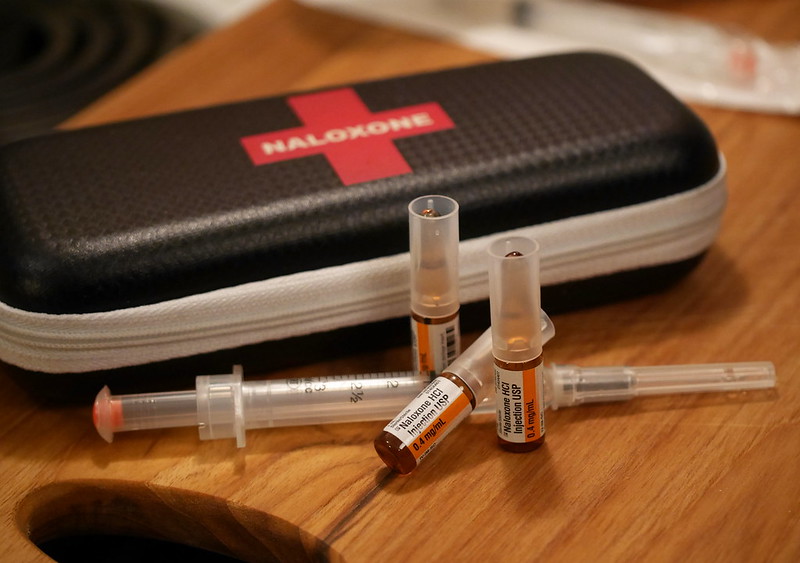San Francisco recorded slowly decreasing overdose deaths over the first three months of 2024, according to new data. But how much optimism can we take from this?
March was the second consecutive month in 2024 that fatal overdoses decreased, based on data from the city medical examiner, as Axios San Francisco reported. Citywide, 72 people lost their lives in January. This decreased to 66 deaths in February, then 61 in March. In March, the city reports that 45 deaths involved fentanyl.
Anna Berg, LCSW, programs director at the Harm Reduction Therapy Center in San Francisco, described the news as “encouraging.” It is “what we’ve all been hoping for as a broader community for some time,” she told Filter.
A major note of caution is that overdose deaths also decreased at the beginning of 2023.
The context is that 2023 was San Francisco’s worst year on record for overdose deaths. City forensics data estimate that a total of 806 people died (the number is preliminary until officials verify each case).
A major note of caution over the 2024 figures so far is that overdose deaths also decreased at the beginning of 2023, falling from 84 in January to 52 in February—before rising in March and most subsequent months to a peak of 88 in August. It remains to be seen what will happen in the rest of 2024.
Numerous city policies are not supportive of a sustained decline. In March, San Francisco voters approved Proposition F, requiring the city to drug test people receiving certain public benefits. Mayor London Breed (D) backed the measure as a way compel more people into substance use disorder treatment. Harm reductionists condemned it for punishing poverty, because of the harms of forced treatment, and because of the strain they say it will place on scarce treatment resources.
Mayor Breed has also led a police crackdown centered on the city’s Tenderloin district, while an anti-narcotics joint task force with state law enforcement aims to charge people who sell fentanyl with murder.
“It’s disappointing,” Berg said of the Breed administration. “We know that resurrecting policies from the failed War on Drugs is going to give us the same results of increased generational trauma, pushing people to the margins of society versus bringing them into care that is desperately needed. We are going to see the impacts of this for generations.”
Critically, city and state officials have also failed to move forward with safe consumption sites (SCS, also known as overdose prevention centers). Mayor Breed formerly endorsed the facilities, which are proven to prevent overdose deaths by allowing people to use banned drugs with staff and resources on hand. For years now, San Francisco advocates have fought to open them.
Back in November 2021, Breed announced the city was purchasing a $6.3 million commercial property, which harm reduction advocates believed could be used as a future SCS. She’s since changed direction. In December 2022, she moved to close a facility at the Tenderloin Center which had been operating as a temporary, locally sanctioned SCS that year, averting 333 overdoses. Local service provider HealthRight 360 described the action as “horrible” and “despicable.”
“There’s more naloxone out there, more people who know how to use it and are identifying emergencies in real time before they become fatal.”
But other work in the city, as Berg pointed out, is undoubtedly helping to prevent deaths.
“There’s been a lot of wonderful community work happening in the context of [the city’s] unfortunate political direction,” she said. “At our mobile sites, we have steadily increased the amount of naloxone we are distributing at every location. There has been work by San Francisco Department of Public Health to expand that to all sorts of organizations, even those that don’t do anything with folks who are using substances, to expand education and access.”
According to the San Francisco Standard, the health department distributed 100,000 naloxone doses between January and September 2023. Local organizations like FACES for the Future Coalition are offering free training to high school students to recognize and reverse overdose, while a community naloxone training at the University of California San Francisco, for example, reportedly drew 150 people.
“There’s more naloxone out there, more people who know how to use it and are identifying emergencies in real time before they become fatal,” Berg said. “For our site alone, 63 percent of people who accessed our Narcan and overdose prevention services in February reported reversing an overdose. That’s an astounding number for one agency.”
Yet governments continue to limit the resources on offer. San Francisco was one of a handful of California cities slated to open an official SCS as a pilot under legislation approved by state lawmakers in 2022, Senate Bill 57. But in a major reversal of past campaign promises, Governor Gavin Newsom (D) vetoed the bill that year.
San Francisco activists have kept working to save lives and highlight the acute need for SCS. In August 2023, a group called Concerned Public Response set up a temporary, unsanctioned site in an alleyway, where they reported reversing two overdoses in one day of action.
According to the available data for 2023, deaths involving fentanyl represented the biggest increase for the city that year. Significant increases in deaths involving methamphetamine and cocaine were also recorded, though such data should always be questioned.
In demographic terms, the majority of deaths (62 percent) were among people over 45. A large majority of recorded victims (almost 83 percent) were men. Black residents died at grossly disproportionate rates—suffering 31 percent of overdose deaths, despite representing under 6 percent of the city’s population. And 28 percent of people who died were unhoused.
Photograph by Jeff Anderson via Flickr/Creative Commons 2.0





Show Comments